Real Estate Google Ads Keywords: The Complete 2025 Guide to Maximum ROI
Last updated: September 10, 2025
The real estate advertising landscape has reached a tipping point. With real estate Google Ads costs increasing 35.48% year-over-year, brokers and agents can no longer rely on spray-and-pray tactics. Yet successful real estate professionals are generating $2-5 in commission for every dollar spent on Google Ads by mastering strategic keyword selection and campaign optimization.
This comprehensive guide reveals the exact real estate Google Ads keywords and strategies that convert browsers into buyers and sellers into listings. You’ll discover proven keyword categories, budget allocation frameworks, and advanced targeting techniques that maximize your return on investment while minimizing wasted ad spend.
Understanding the New Real Estate Search Landscape
The modern real estate customer journey has fundamentally changed. Today’s buyers and sellers begin their search with informational queries months before they’re ready to transact. With the estimated median cost per click (CPC) of $4.22 in Google Ads, the real estate industry enjoys one of the lowest rates of $1.55 compared to other professional services, but competition remains fierce.
Average conversion rates for the real estate industry sit at 2.88%, while the average cost per lead reaches $66.02. However, 65% of industries saw better conversion rates in 2025, indicating that smart strategy implementation drives superior results.
Your potential clients now research neighborhoods, compare market trends, and evaluate agents online before making contact. This shift requires a sophisticated keyword strategy that captures prospects throughout their entire decision-making process.
High-Converting Buyer Keywords for 2025
Transactional Keywords: Ready-to-Buy Traffic
These keywords capture users with immediate purchase intent and typically deliver the highest conversion rates:
Primary Location-Based Terms:
- “homes for sale in [city name]”
- “houses for sale near me”
- “[neighborhood] real estate listings”
- “condos for sale [zip code]”
- “new construction homes [area]”
Feature-Specific Searches:
- “3 bedroom houses under $400k [city]”
- “homes with pools [neighborhood]”
- “waterfront properties for sale [area]”
- “luxury homes [city] golf course”
- “pet-friendly condos [location]”
Intent-Driven Long-Tail Keywords
Long-tail keywords often cost less per click while attracting highly qualified prospects:
- “first time home buyer programs [state]”
- “move-in ready homes [school district]”
- “townhomes with garage [neighborhood]”
- “single family homes under $500k [city]”
- “retirement communities [area] active adult”
Lifestyle and Demographic Keywords
Modern buyers search based on lifestyle preferences rather than just location:
- “family friendly neighborhoods [city]”
- “walkable communities near [landmark]”
- “best school districts [county]”
- “downtown lofts [city] young professionals”
- “55+ communities [state]”
High-Converting Seller Keywords
Urgency-Based Keywords
These capture motivated sellers who need quick solutions:
- “sell my house fast [city]”
- “cash home buyers [area]”
- “quick home sale [location]”
- “we buy houses [city]”
- “urgent home sale”
Valuation and Market Research Terms
Sellers often begin with valuation inquiries before committing to an agent:
- “home value estimator [city]”
- “how much is my house worth”
- “real estate market trends [area]”
- “comparable home sales [neighborhood]”
- “property valuation services”
Situation-Specific Keywords
Target sellers facing specific life circumstances:
- “sell house before foreclosure”
- “relocating need to sell house”
- “inherited property sale [city]”
- “divorce house sale [area]”
- “job transfer sell house quickly”
Strategic Keyword Cost Analysis
Understanding keyword costs helps you allocate budget effectively. Based on current market data:
Premium Keywords (Higher CPC, Higher Intent)
- “luxury real estate agent”: $8-15 per click
- “commercial real estate broker”: $12-20 per click
- “waterfront homes for sale”: $6-12 per click
Moderate-Cost Keywords (Balanced ROI)
- “homes for sale [city]”: $3-8 per click
- “real estate agent near me”: $4-9 per click
- “sell my house”: $5-10 per click
Budget-Friendly Keywords (Lower CPC, Volume Opportunity)
- “[neighborhood] homes”: $1-4 per click
- “house hunting [area]”: $2-5 per click
- “local real estate agent”: $2-6 per click
Advanced Targeting Strategies
Geo-Targeting Optimization
Rather than targeting entire cities, focus on:
- Specific ZIP codes with higher property values
- School district boundaries for family-focused campaigns
- Radius targeting around luxury amenities
- Neighborhood-level precision for local expertise positioning
Audience Layering Techniques
Combine demographic data with behavioral signals:
- High-income households + recent property searches
- Life event targeting (new job, marriage, retirement)
- Competitor audience targeting (visitors to other agent websites)
- Past client lookalike audiences
Seasonal Keyword Adjustments
Adapt your keyword focus based on market cycles:
Spring/Summer Peak Season:
- Emphasize family-focused keywords
- Target move-in ready properties
- Focus on school district searches
Fall/Winter Motivated Period:
- Target urgent seller keywords
- Emphasize cash buyer benefits
- Focus on year-end tax advantages
Negative Keywords: Your Budget Protection Strategy
Implementing comprehensive negative keyword lists can reduce wasted spend by 25-40%. Essential negative keywords include:
Job Seekers:
- “jobs,” “career,” “employment,” “hiring”
Renters and Tenants:
- “rent,” “rental,” “lease,” “apartment”
Information Seekers Only:
- “free,” “DIY,” “how to,” “course”
Competitor Traffic:
- “zillow,” “trulia,” “redfin,” “realtor.com”
Low-Value Searches:
- “cheap,” “foreclosure,” “auction,” “distressed”
Campaign Structure for Maximum Performance
Recommended Campaign Organization
Campaign 1: Buyer Leads – High Intent
- Ad groups by location and property type
- Exact and phrase match keywords
- Higher bids for immediate conversion focus
Campaign 2: Seller Leads – Motivated
- Ad groups by seller motivation level
- Broad match with extensive negatives
- Moderate bids with lead nurturing focus
Campaign 3: Brand Protection
- Branded terms and competitor comparisons
- Exact match only
- Lower bids for defensive positioning
Budget Allocation Guidelines
For solo agents with $2,000-5,000 monthly budgets:
- 60% to buyer campaigns (higher immediate ROI)
- 30% to seller campaigns (longer-term value)
- 10% to brand protection and testing
For brokerages with $10,000+ monthly budgets:
- 50% to buyer campaigns
- 35% to seller campaigns
- 10% to brand and reputation management
- 5% to market expansion testing
Performance Max Integration Strategy
Google’s Performance Max campaigns have become essential for real estate lead generation. These AI-driven campaigns access all Google properties – Search, Display, YouTube, Gmail, and Maps – through a single campaign.
Performance Max Best Practices
Creative Asset Requirements:
- High-quality property photos (minimum 15 images)
- Professional headshots and team photos
- Local market videos (neighborhood tours, market updates)
- Compelling headlines emphasizing local expertise
Audience Signal Optimization:
- Upload past client lists for similar audience targeting
- Include website visitors and email subscribers
- Add competitor audience insights
- Layer demographic data for enhanced targeting
Landing Page Optimization for Higher Conversions
Your keyword strategy success depends on where traffic lands after clicking your ads.
Essential Landing Page Elements
Above-the-fold Requirements:
- Clear value proposition (local expertise, unique services)
- Lead capture form with minimal fields
- Click-to-call button prominently displayed
- Social proof (testimonials, recent sales)
Content That Converts:
- Local market insights and recent sales data
- Neighborhood guides and school information
- Mortgage calculator or home value estimator
- Success stories with specific results
Mobile Optimization Priorities
With 73% of real estate searches occurring on mobile devices:
- Page load speed under 3 seconds
- Single-column layout for easy scrolling
- Thumb-friendly button placement
- Auto-fill friendly contact forms
ROI Measurement and Optimization
Key Performance Indicators to Track
Campaign Level Metrics:
- Cost per lead by keyword category
- Lead-to-appointment conversion rate
- Appointment-to-listing conversion rate
- Average commission per lead source
Keyword Level Analysis:
- Search impression share
- Quality Score trends
- Conversion rate by match type
- Customer lifetime value by keyword
Monthly Optimization Checklist
- Review search terms report for negative keyword additions
- Analyze landing page conversion rates by traffic source
- Test new ad copy variations for top-performing keywords
- Adjust bids based on conversion data
- Update seasonal keyword priorities
- Monitor competitor activity and adjust positioning
Troubleshooting Common Real Estate PPC Challenges
Low-Quality Lead Problem
If you’re receiving leads with fake information or low intent:
- Implement qualification questions on landing pages
- Use tighter geographic targeting
- Add pre-qualifying phone scripts
- Create separate campaigns for different intent levels
High Cost Per Lead Issues
When costs exceed profitable thresholds:
- Audit keyword match types (reduce broad match usage)
- Implement dayparting to avoid low-converting hours
- Improve landing page conversion rates
- Focus budget on highest-converting locations
Ad Disapproval Challenges
Google’s housing policy requires careful compliance:
- Avoid demographic targeting based on protected classes
- Use inclusive language in all ad copy
- Focus on property features, not ideal buyer characteristics
- Regularly review policy updates and adjust accordingly
Frequently Asked Questions
What’s a realistic monthly budget for real estate Google Ads?
Solo agents typically need $1,500-3,000 monthly to compete effectively in most markets. This budget allows for consistent presence across buyer and seller keywords while providing enough data for optimization. Brokerages often allocate $5,000-15,000 monthly across multiple agents and markets.
How long does it take to see results from real estate PPC campaigns?
Initial leads typically appear within 1-2 weeks of campaign launch. However, meaningful optimization requires 30-60 days of data collection. Full ROI assessment needs 3-6 months, as real estate transactions have longer sales cycles than other industries.
Should I use broad match keywords for real estate ads?
Use broad match sparingly and only with extensive negative keyword lists. Phrase match and exact match provide better control over traffic quality. If using broad match, start with lower bids and monitor search terms reports daily to add irrelevant queries as negatives.
What’s the difference between Google Ads and Facebook Ads for realtors?
Google Ads target active searchers with high intent but higher costs. Facebook Ads reach passive audiences with lower costs but require more nurturing. Most successful agents use both platforms – Google Ads for immediate leads and Facebook for brand building and lead nurturing.
How do I avoid Google Ads policy violations in real estate?
Focus on property features rather than buyer demographics. Avoid language that could discriminate based on familial status, religion, or other protected classes. Use inclusive imagery and text. Regularly review Google’s housing policy updates and adjust campaigns accordingly.
Can I compete with Zillow and other big portals on Google?
Yes, but focus on hyperlocal keywords and personal branding rather than competing on broad terms. Target “[neighborhood] real estate agent” instead of “real estate.” Emphasize your local expertise, personal service, and specialized knowledge that big portals cannot match.
What landing pages work best for real estate PPC traffic?
Create specific landing pages for different keyword themes. Buyer traffic should land on property search pages or neighborhood guides. Seller traffic works best on valuation tools or market analysis pages. Always include clear contact information and social proof.
How do I track offline conversions from Google Ads?
Use Google’s offline conversion tracking to import lead-to-sale data. Set up call tracking to measure phone leads from ads. Implement CRM integration to track the full customer journey from click to closing. This data helps optimize for actual revenue, not just lead volume.
What’s the best way to handle seasonal fluctuations in real estate?
Adjust keyword focus and budgets based on seasonal patterns. Increase buyer campaign budgets in spring/summer peak seasons. Focus on motivated seller keywords during slower winter months. Plan campaigns around local market events like school year timing or major employer changes.
How do I compete against agents with much larger budgets?
Focus on long-tail keywords where competition is lower. Target specific neighborhoods where you have expertise rather than entire cities. Use negative keywords aggressively to avoid competing on irrelevant terms. Optimize landing pages for higher conversion rates to improve Quality Scores and lower costs.
Should I pause campaigns during slow market periods?
Maintain consistent presence but adjust budgets and keyword focus. Slow periods often present opportunities to capture market share at lower costs. Focus on seller keywords during buyer slowdowns, as motivated sellers may need help regardless of market conditions.
What ad copy works best for real estate keywords?
Emphasize local expertise, recent sales results, and specific benefits. Use numbers and timeframes (“Sold 47 homes in 2024” or “Average 18 days on market”). Include clear calls-to-action and create urgency when appropriate. Test emotional appeals against logical benefits to find what resonates with your audience.
Building Your Real Estate PPC Success Framework
Creating a profitable real estate Google Ads strategy requires systematic implementation and consistent optimization. Start with a focused keyword list targeting your core market areas, implement comprehensive negative keyword lists, and create landing pages that convert traffic into qualified leads.
The most successful real estate professionals treat Google Ads as an integrated part of their business development strategy, not just an advertising expense. They understand that effective keyword selection, combined with compelling ad copy and optimized landing experiences, creates a predictable lead generation system that supports sustainable business growth.
Monitor your metrics consistently, test new approaches regularly, and adjust your strategy based on actual performance data rather than assumptions. The real estate market continues evolving, and your advertising strategy must adapt accordingly to maintain competitive advantage.
Your investment in mastering real estate Google Ads keywords pays dividends through consistent, high-quality lead generation that supports your business goals and serves your clients’ needs effectively.

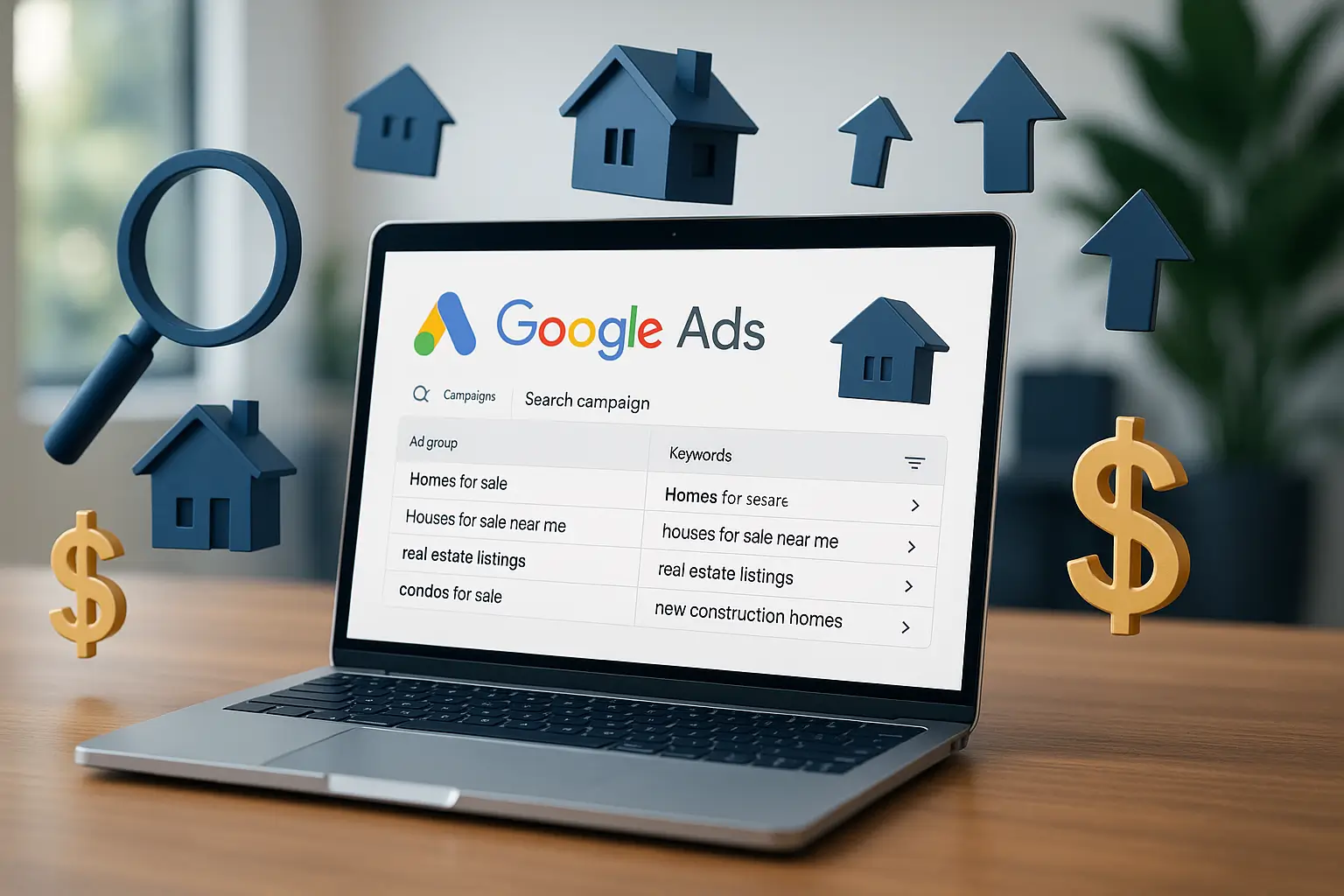

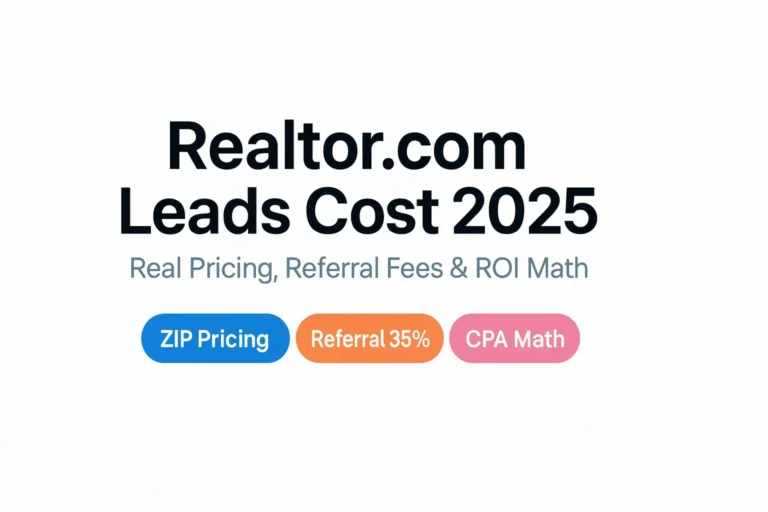
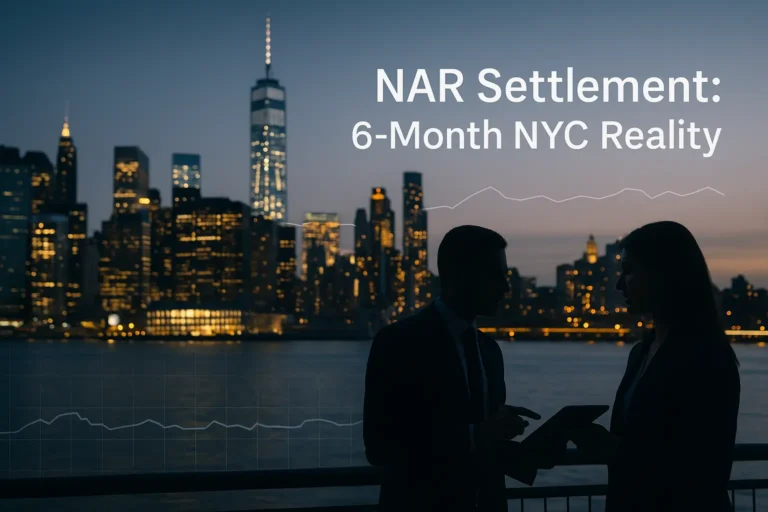

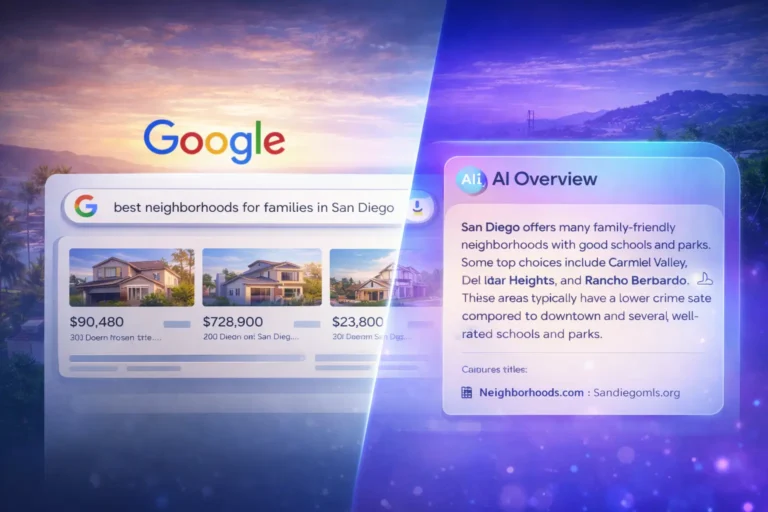
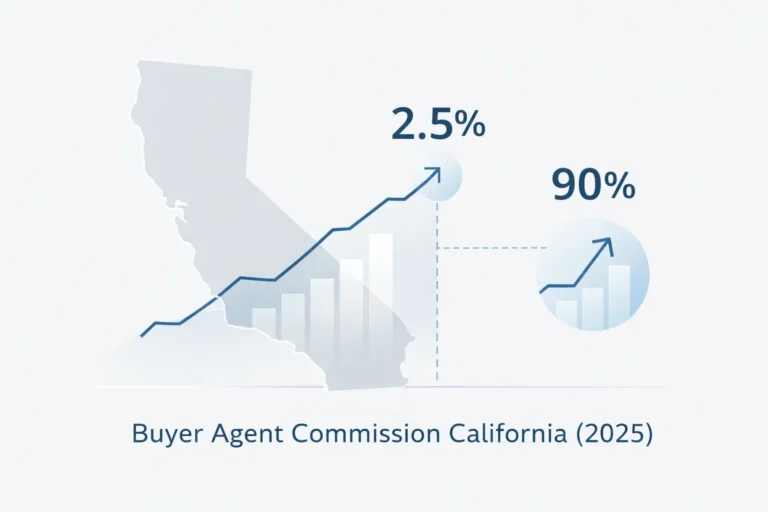
One Comment